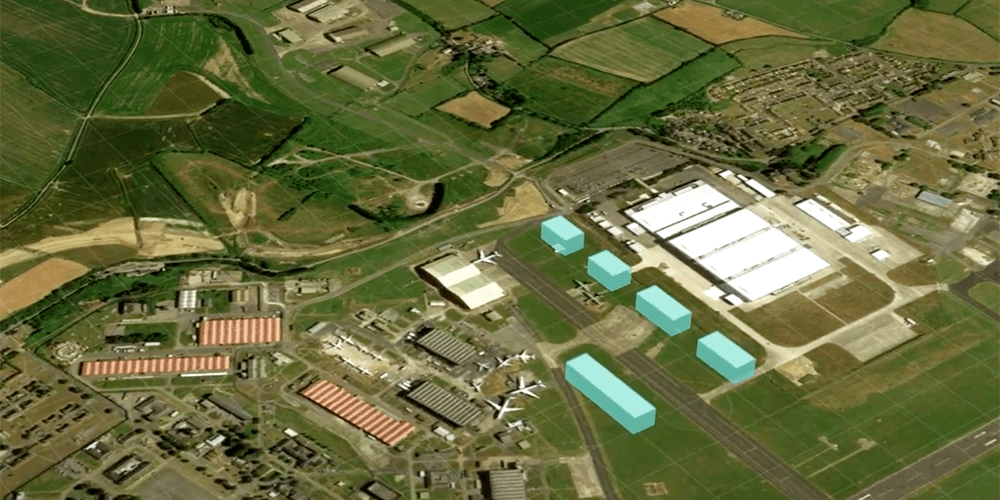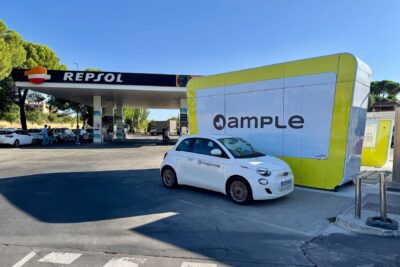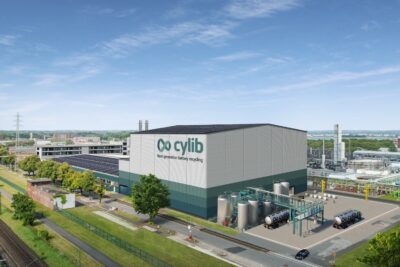Britishvolt & AMTE planning UK battery plant
The start-ups Britishvolt and AMTE Power have provided details of their plans to build a battery cell factory for electric cars with a capacity of 30 to 35 GWh with the support of the British Government. The first stage is set for completion by 2023.
++ Kindly find updates to this article below. ++
The two partners first announced the project in May with rather vague information. Now the most important cornerstones of the project are ready to be discussed.
The initiators have now chosen the Bro Tathan industrial estate in St. Athan, Wales, as the preferred location for the factory from 42 possible sites. According to the timetable, the first stage of the factory’s expansion should be fully operational by the third quarter of 2023. The investment volume by that date is expected to be 1.2 billion pounds, equivalent to around 1.34 billion euros.
According to Britishvolt, the battery cell factory is to be built on more than 80 hectares of land and, with a length of one kilometre and a height of 30 metres, is to become one of the three largest individual sites in Europe. The British company also aims for battery production to be as environmentally friendly as possible, which is why “nearby renewable sources are of enormous importance”, as they write in an accompanying press release. Among other things, a solar park is to be created in the vicinity of the plant.
According to the initiators, one of the reasons for choosing South Wales as a location is the availability of skilled workers. As is well known, St. Athan is also home to an Aston Martin production facility. In addition to the 3,500 jobs in the factory, Britishvolt expects suppliers and service providers to create a total of 10,000 to 15,000 additional posts in the region. Production will focus on cells for electric cars and storage applications.
The background to this significant project is that given the growing dependence on Asian battery cell manufacturers, and because of the Brexit, Great Britain wants to bring the value chain for electric cars a little further into the country. The aim is “to build a 30+ gigawatt-hour factory with the support of the British Government, creating up to 4,000 jobs in the process.
“Meeting Road to Zero targets and moving the UK into a low carbon economy will necessitate the unprecedented electrification of vehicles, and reliance on renewable energy will require extensive battery storage,” says Britishvolt CEO Lars Carlstrom.
Kevin Brundish, head of AMTE Power, is even more precise in this respect: “The recent global crisis has further underlined the importance of a robust domestic supply chain,” he said when the project was first announced in May. Founded in 2013 and employing around 50 people, the start-up claims to have the most significant cell production facility in the UK to date. That being said, the AMTE plant in Thurso, Scotland, will mainly produce specialised cells in small series. For 2023, the manufacturer plans to open its production facility with a capacity of 1 to 5 GWh per year, irrespective of the significant project announced above.
Britishvolt was only founded in December 2019 and has declared that its business objective is to establish the British mass production of battery cells on a large scale. Both partners are supported by the Advanced Propulsion Centre, which operates on behalf of the Government and provides funding, contacts and know-how between research companies, spin-offs and start-ups. Since 2013, the Centre has, according to its statements, “financed more than 110 CO2-saving projects involving more than 290 partners”.
Update 17 July 2020: The Bro Tathan industrial estate in St. Athan in Wales has been awarded the contract to host the new British battery factory. Britishvolt & AMTE had their eyes on the site already and now signed a corresponding letter of intent with the Welsh Government.
Although the agreement is not legally binding, Britishvolt has told BBC Wales that it will only consider the St Athan site for the project. However, the Government says that talks are still “at an early stage”. This sounds as if the negotiations could again fail, in which case Britishvolt would have to reorient itself by committing itself to St. Athan early.
Britishvolt CEO Orral Nadjari stated that the company wants to start construction in spring 2021 for the plant to be fully operational by mid-2023. This would roughly correspond to the earlier statements which mentioned the third quarter of 2023.
Update 2021: There has been a surprise announcement at the end of last year when Britishvolt took a u-turn saying they would not build in Wales. Instead, the planned battery factory is to come to Blyth, Northumberland, near Nissan and due to connections to renewable energy. You can read our full report here.
business-live.co.uk, bbc.com, prnewswire.co.uk, brotathan.wales, britishvolt.com (PDF), bbc.com, business-live.co.uk, prnewswire.co.uk (all 17 July updates)





8 Comments